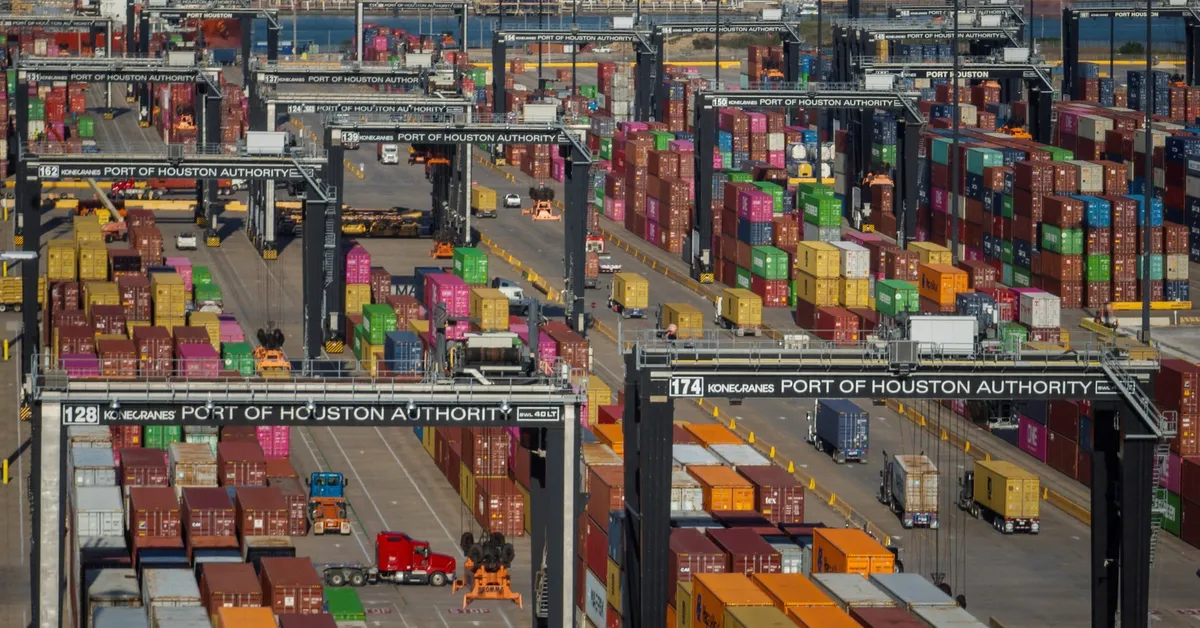
On April 9, 2023, President Donald Trump implemented reciprocal tariffs on numerous countries, including a staggering 104% duty on Chinese goods. This move has escalated his global trade war, even as he prepares to enter negotiations with several nations. The new tariffs have significantly disrupted a global trading order that has remained stable for decades, sparking fears of a potential recession and causing a sharp decline in worldwide stock markets.
The S&P 500 index closed below 5,000 for the first time in nearly a year on Tuesday, edging closer to a bear market—a situation characterized by a 20% decline from its most recent high. Since Trump announced the tariffs, S&P 500 companies have experienced a staggering loss of $5.8 trillion in market value, marking the most significant four-day decline since the benchmark was established in the 1950s, according to data from LSEG.
Trump's administration has sent mixed signals regarding the future of the tariffs. While he has described the tariffs as permanent, he also claims they are compelling other world leaders to seek negotiations. "We have a lot of countries coming in that want to make deals," Trump stated during a White House event. He also expressed optimism that China would pursue an agreement, indicating that discussions are on the horizon.
Talks are scheduled between the Trump administration and key allies like South Korea and Japan, both of whom are significant trading partners. Additionally, Italian Prime Minister Giorgia Meloni is expected to arrive next week for discussions. Although the prospect of new deals initially boosted stock markets, U.S. stocks relinquished their gains by the end of the trading session.
Trump's decision to nearly double the duties on Chinese imports, which were previously set at 54%, comes as a direct reaction to counter-tariffs announced by Beijing. China has vowed to resist what it perceives as economic blackmail. Economists warn that U.S. consumers could face rising prices on everyday items, from sneakers to wine, as a consequence of this trade conflict. A recent Reuters/Ipsos poll revealed that nearly three-quarters of Americans anticipate price hikes over the next six months.
Trump's earlier across-the-board 10% tariffs on imports from various countries took effect on Saturday. The latest round of tariffs, activated at 12:01 a.m. ET on Wednesday, targets countries that Trump accuses of "ripping off" the U.S. This list includes several close allies, such as the European Union, which is facing a 20% tariff, and Vietnam, which is subject to a 46% tariff. Trump has stated that these tariffs are necessary to counteract barriers that have hindered U.S. businesses.
Trump has hinted that he may not be done with imposing tariffs. During a meeting with Republican lawmakers, he indicated that major tariffs on pharmaceutical imports might be announced soon—one of the few categories currently exempt from the new duties. As the trade landscape continues to evolve, the implications of these tariffs will be closely monitored by both investors and consumers alike.
Reporting by Reuters newsrooms; Writing by Joseph Ax and John Geddie; Editing by Lincoln Feast. Joe Cash, who covers China's economic affairs, has a background in UK and EU trade policy across the Asia-Pacific region and is a Mandarin speaker.